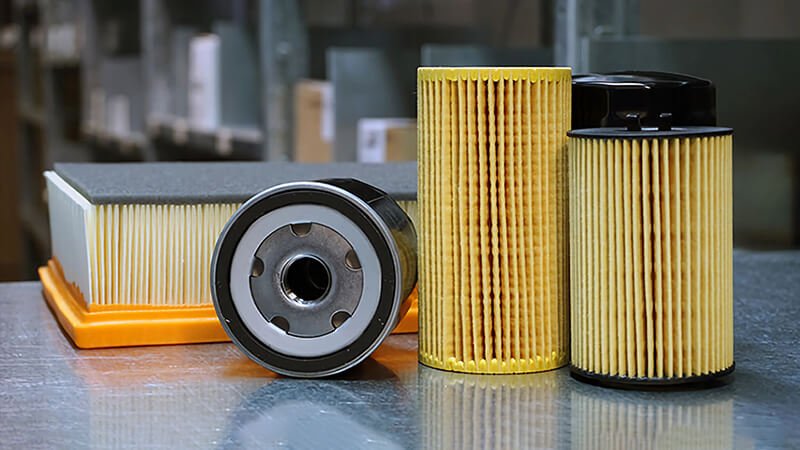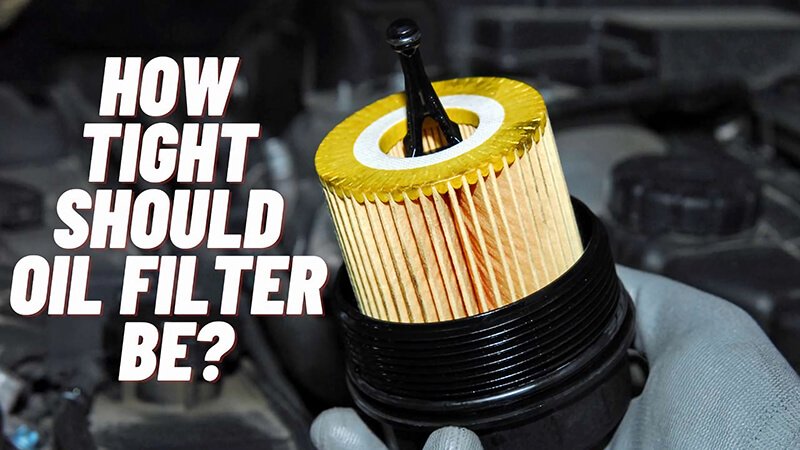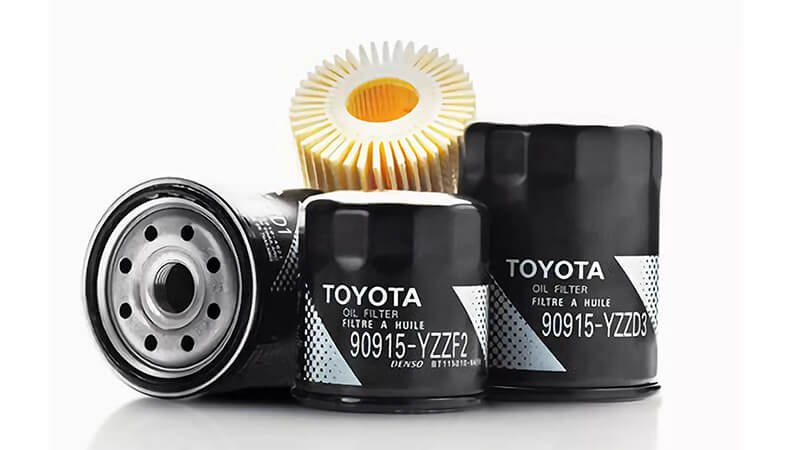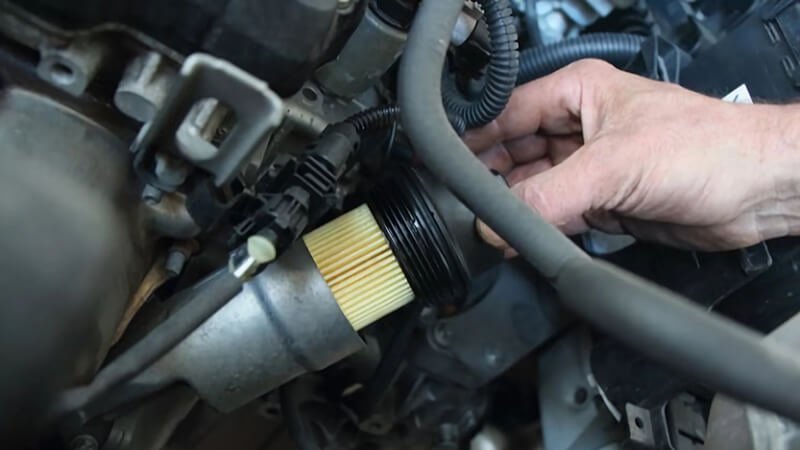When managing vehicle maintenance costs, reusing parts like oil filters might seem like a smart idea. But this one decision could silently hurt your engine more than you think.
Most oil filters are not designed to be reused. Reusing them can reduce engine protection and increase wear, especially in standard disposable filters. Only a few specific types are built for reuse, and they require proper cleaning.
Changing oil filters might feel routine, but understanding their purpose and limitations can help you make smarter, safer choices—especially if you manage fleets or work in procurement.

Can you remove an oil filter and put it back on?
Many people wonder if they can simply remove the oil filter, drain or clean it, and screw it back in. It feels efficient and budget-friendly. But that’s not how oil filters work—and here’s why it’s a problem.
You can technically remove and reinstall an oil filter, but it’s not recommended. Once used, standard oil filters lose their efficiency, and their sealing gasket may not reattach properly. This risks leakage and poor filtration.
Why you should think twice about reinstalling
Oil filters, especially disposable ones, are designed for a single use. They are meant to trap dirt, metal shavings, and carbon buildup from circulating in your engine. Once they’re saturated, their ability to filter drops sharply. Even worse, the bypass valve1 inside might open too early, letting unfiltered oil pass through.
Problems from reused filters
| Issue | Result |
|---|---|
| Worn sealing gasket | Oil leaks around the filter |
| Clogged filter media | Poor oil flow, reduced lubrication |
| Bypass valve malfunction | Unfiltered oil cycles back into the engine |
| Heat-stressed components | Risk of filter collapse or failure |
When we worked with a mid-sized logistics company, they tried to save on costs by reusing filters during two oil changes. Within 3 months, their engine performance dropped, and oil pressure problems appeared. We helped them analyze the situation and found degraded filter media2 was the culprit.

How many times can you use an oil filter?
This is one of the most common questions we get from customers. They want to know how many uses they can get out of a filter before they’re forced to replace it.
Standard disposable oil filters should be used only once. Reusable oil filters, which are specially made with stainless steel mesh, can be used multiple times—but only if they’re cleaned and maintained properly.
Disposable vs. Reusable: Know the difference
Most oil filters3 in the market are disposable. These filters use paper or synthetic media that break down after just one use. Reinstalling them after a cycle doesn't give you the same filtration capacity or oil pressure protection.
Reusable filters, on the other hand, are built differently:
| Type | Core Material | Use Count | Maintenance Required |
|---|---|---|---|
| Disposable | Paper/Synthetic | 1 (Single Use) | None |
| Reusable | Stainless Steel | Multiple (5–10x) | Clean after every use |
At Runex Auto, we specialize in both types. For example, some fleet operators prefer reusable filters4 to lower long-term costs and reduce waste. But they also understand the cleaning process takes time, and skipping a step could do more harm than good.

Can we wash an oil filter and use it?
This seems logical—clean it, dry it, use it again. The truth is, it really depends on the type of oil filter you're using. Most people misunderstand this part.
You cannot wash and reuse standard oil filters. Only filters built for reuse—typically made with washable stainless steel mesh—can be cleaned and reused safely. Paper-based filters will degrade if you try to clean them.
What happens when you wash a paper filter?
Standard filters are made with tightly packed cellulose fibers or synthetic materials. Once soaked with oil and trapped debris, they lose structural integrity. Washing them can tear the media or leave behind residue, reducing effectiveness.
Proper reusable filter cleaning
For stainless steel mesh filters, cleaning involves5:
- Removing and draining oil completely
- Rinsing with solvent or detergent under pressure
- Drying with air
- Inspecting for mesh damage or clogging
| Cleaning Step | Importance |
|---|---|
| Solvent rinse | Removes trapped particles |
| Air dry | Avoids oil dilution on reinstall |
| Mesh inspection | Ensures flow rate remains stable |
One of our clients in Germany shifted to reusable filters6 for off-road vehicles. At first, they skipped proper cleaning steps, and their engines faced restricted oil flow. After we trained their maintenance team, they saw consistent performance and fewer breakdowns.

Why are oil filters not reusable?
If filters protect your engine, why not build them all to be reusable? It’s a fair question. But there’s a practical reason most oil filters are disposable.
Oil filters are not reusable because they’re designed for maximum efficiency at low cost. Disposable filters are made with materials that trap small particles well but degrade after use. Reusable filters require higher manufacturing costs and strict cleaning standards.
Why single-use makes sense for most vehicles
There’s a balance between cost, performance, and convenience. Disposable filters are easy to replace, affordable in bulk, and offer reliable protection when changed on schedule.
Making all filters reusable would raise vehicle maintenance complexity and costs. For standard drivers or average fleets, the extra process and training often aren’t worth it.
Risk of user error
Many engines are damaged because of one mistake: trusting a reused filter. If a disposable filter is reinstalled by accident or if a reusable one is not cleaned thoroughly, the oil system suffers.
| Filter Type | Main Risk if Reused Improperly |
|---|---|
| Disposable | Clogging, pressure loss, leaks |
| Reusable | Poor cleaning leads to contamination |
When a fleet manager from Eastern Europe decided to stretch oil filter changes across two service cycles, engine wear7 and oil sludge increased quickly. After switching back to our standard disposable filters8, they saw fewer service issues and improved reliability.

Conclusion
Oil filters9 play a critical role in engine health. Most are not reusable because they’re built to trap particles once and then be replaced. Reusing disposable filters can hurt your engine and raise maintenance costs. While reusable filters exist, they require proper cleaning and are more common in specialized settings. At Runex Auto, we help our customers make the right choice based on cost, use case, and reliability.
-
Learn how a bypass valve functions to prevent engine damage. This knowledge can help you make informed decisions about oil filter maintenance. ↩
-
Discover the impact of degraded filter media on engine performance and longevity. This resource can help you understand the importance of timely filter changes. ↩
-
Explore this link to understand the advantages of different oil filters and how they impact vehicle performance and maintenance. ↩
-
Discover the benefits of reusable filters, including cost savings and environmental impact, to make informed choices for your vehicle. ↩
-
Learn the best practices for cleaning reusable filters to ensure optimal performance and longevity, enhancing your filtration system's efficiency. ↩
-
Explore the advantages of reusable filters, including cost savings and environmental impact, to make informed choices for your filtration needs. ↩
-
Learn about the impact of engine wear on vehicle performance to better manage maintenance and extend the life of your vehicle. ↩
-
Explore the advantages of disposable filters, including cost-effectiveness and ease of maintenance, to enhance your vehicle's performance. ↩
-
Find the best auto oil filter from Runex, clicking this link to get your best product and price for your business. ↩













